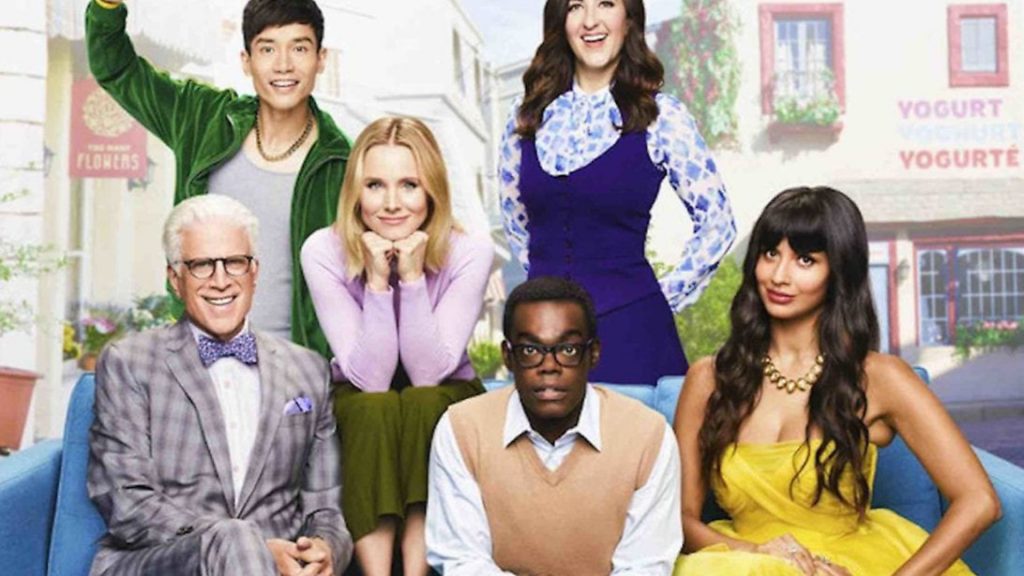
WILL SELF fears lifting the lockdown will only lead to further waves of the coronavirus.

Some years ago I was commissioned to write an introduction for a new edition of Russell Hoban’s masterpiece Riddley Walker, which depicts a post-apocalyptic England in which culture has mutated to the extent that such governance as there is gets dispensed via a travelling Punch and Judy show. So pretty prescient – I’m sure you’ll agree. Anyway, I phoned Hoban to discuss the piece I was going to write, and upon answering he said: ‘Please call back in half an hour – my wife and I are about to watch Sex in the City.’
Hoban was in his early eighties – so I was impressed he could still take an interest in the erotic adventures of those two generations younger than him. Of course, Hoban was – judging by his oeuvre and his philoprogenitiveness – a fairly sexy fellow; moreover, his interest, as a long-time American exile in England, might well have been more in the series’ Manhattan settings, than bedroom antics of Carrie, Samantha, Charlotte and Miranda. For my own part, the older I get the less I find it possible to suspend disbelief in just about anything – unlike Hoban, years of inventing stories for others seems to’ve exhausted my own capacity for wonderment: others see the marionettes – I, only their strings. I also – contra Hoban’s example – can’t help feeling that age withers our credulity as well: the first 50 depictions of a relationship going wrong (or right) that you witness may well seem believable – but the 500th? Especially when your own capacity to enjoy the pleasures of the flesh is waning, I hardly think such gyrations entertaining.
And how much worse must it be when you’re actually dying? I remember visiting a friend in extremis, in hospital, shortly before the lockdown – and I found her watching a series called The Good Place: a comedy about the afterlife. Personally, not having any belief in life after death whatsoever, I would’ve found the acid-pastel sets of this jolly farrago to be nothing but the thinnest of scrims, interposed between me and a very bad place indeed – yet she seemed able to lose herself in it altogether; while I sat there, overcome by the non-fiction narrative unfolding before my very eyes.
Now comes the Covid-19 pandemic and the caesura of all dramatic productions by cause of social distancing measures. Last week I was asked – as part of a Q&A with the French cultural magazine, Les Inrockuptibles – whether the crisis was fomenting any fictional ideas in my ever-fervid imagination; I replied that while in my experience it was a mistake for fabulists to surrender to the zeitgeist (which after all, can become passé very fast), nonetheless I’d essayed a short story entitled All Actors Have Died, in which a mysterious virus attacks anyone who attempts to get others to suspend disbelief, for money, in their impersonations. That this idea was to some extent satiric can’t be denied – but who is it satirising?
I suppose, in part, all of us – since we all grew overly comfortable in belief that ‘our’ National Health Service could protect us from mortality itself. But I think the conceit also highlights the extent to which the collective experience of the pandemic must be, to some extent, a mass failure to any longer suspend disbelief in a whole range of fictions. Very shortly after the lockdown began, the main streaming providers let it be known that such was the increase in demand for all those drama series, they were reducing the speed with which they download, lest the internet crash. To me, it’s pretty bizarre that such vast numbers of people were not only willing, but also able to abandon themselves to a myriad of flimsy scenarios, all predicated on social conditions that no longer obtain.
It’s as if the pandemic had, at one fell sneeze, managed to render all fiction historic. Rather than identifying with characters’ intentions and actions, we now look at them casually shaking hands with strangers – or having sex with them for that matter – as if these were the mores of a bygone age. If, that is, we bother to watch at all, given the relentless news beat will, sooner rather than later, hammer us back down into the purulent present; which is, of course, where we find the biggest fictions of all. Every afternoon at 5pm you can switch on your radio or television, or log on to the appropriate site, and listen-with-a-Minister, who, will inform us that the government’s response to coronavirus will be ‘led by the science alone’.
But science is wholly value neutral – science is only interested in more science: it has no view whatsoever on the preservation of this human life – as against that one. Worse still, what the science tells us in this instance is that we don’t know whether, if lockdown is lifted, the virus will resurge – although the strongest likelihood is that it will. But that doesn’t stop storyteller after storyteller reassuring us that the lockdown will end soon, and we can all get back to enjoying the collective hallucination some call ‘normality’.
Warning: Illegal string offset 'link_id' in /mnt/storage/stage/www/wp-includes/bookmark.php on line 357
Notice: Trying to get property 'link_id' of non-object in /mnt/storage/stage/www/wp-includes/bookmark.php on line 37







